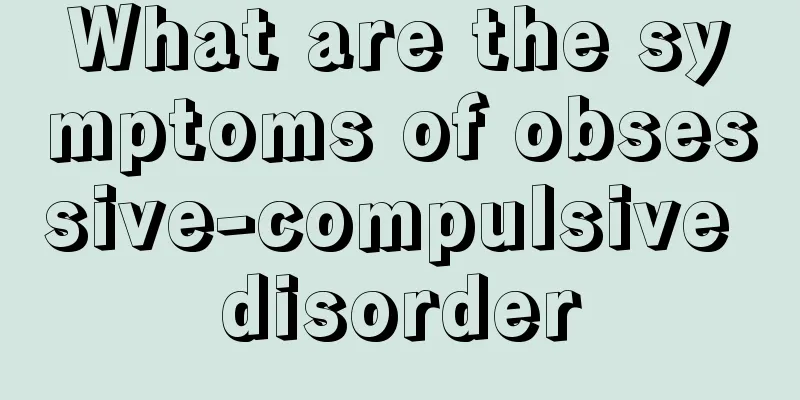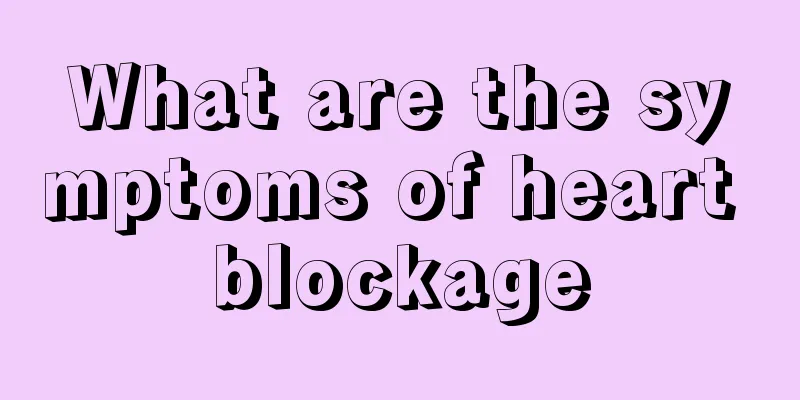What are the symptoms of obsessive-compulsive disorder

|
Many people believe that they have obsessive-compulsive disorder. Some of them have this based on medical evidence, but most of them simply make their own conscious judgments. Although obsessive-compulsive disorder is a very common mental illness in today's society, not all paranoid obsessions are obsessive-compulsive disorder. If we want to carefully distinguish the symptoms of obsessive-compulsive disorder, we need to understand some of the specific manifestations of obsessive-compulsive disorder, and then consider practically whether we have obsessive-compulsive disorder. Obsessive thoughts refer to the patient's loss of control over a certain subconscious desire, impulse, or idea that he knows should not and is unnecessary to appear. Although he tries to get rid of it, he is unable to stop and eliminate this involuntary repetitive thinking. Common obsessions include: Compulsive recollection and association: This means unconsciously repeating and remembering certain things that you have experienced or done, as well as what you or others have said. Common symptoms include a past event, a sentence or a song repeatedly appearing in the mind. Bin's symptom is compulsive recollection. Compulsive doubt: doubting what you have just done, such as right after locking the door, you doubt that it is not locked; right after throwing the letter into the mailbox, you always doubt that you did not put the stamp on it; right after finishing the homework, you always doubt that you missed it or did it wrong; right after washing your hands, you always feel that they are dirty. Obsessive-compulsive patients often show doubt and anxiety, and perform compulsive behaviors, such as repeated checking and repeated washing of hands. Compulsive opposing thoughts: Simply put, the more you want to control a thought, the more it keeps appearing. Such thoughts or ideas are often bad and violate moral concepts. They are a reflection of the patient's potential desires. Therefore, the patient feels deeply ashamed and nervous, afraid of being seen by others, and tries hard to control them. However, the more he tries to control them, the greater the temptation becomes, and the more frequently they occur, which constantly increases the patient's sense of guilt and inferiority. Compulsive rumination: This symptom is similar to obsessive thinking. Patients will dwell on some meaningless problems and become entangled in them and unable to extricate themselves. A female student said during a psychological consultation: "Because I am not good at studying, I am under a lot of pressure, so I always force myself to figure out all the knowledge points, and I will try my best to think even if I can't figure it out. But recently, I sometimes think of some strange questions, such as why 1+1=2 is not equal to 3? The more I think about it, the more confused I am, so I enter a vicious circle. I was very nervous and began to resist this idea firmly, but I got deeper and deeper into it, and I couldn't even study normally." This is a typical symptom of obsessive thinking. The patient's thinking is like being forced onto a never-ending train with no end, and eventually he is exhausted both physically and mentally. Compulsion: The patient repeatedly experiences a strong inner urge to perform an action or behavior that is against his or her will. Although the patient knows that this is an absurd idea and he would not do so, he cannot get rid of this inner impulse. For example, when standing on a bridge or riding on a train, you have the urge to jump off; or you have the urge to curse or shout reactionary slogans. Compulsive behavior refers to repetitive actions or activities performed according to certain rules or stereotyped procedures, mainly including compulsive washing, compulsive checking, compulsive routines, etc. The specific performance is as follows: Compulsive washing: The most prominent symptom is compulsive hand washing. The patient washes his hands constantly, sometimes more than 20 times a day. Especially when the patient's hands or body come into contact with strangers or things used by strangers, they will uncontrollably wash their hands and whole body over and over again. Compulsive checking: Compulsive checking is similar to compulsive washing. The patient cannot control and repeatedly check what he has just done. Some patients with OCD will repeat the check several or even hundreds of times to confirm whether the door is locked, the homework is correct, and whether the stove is turned off. Most of these compulsive actions are caused by obsessive doubt. Compulsive actions: Compulsive actions refer to the patient having to follow a fixed sequence when performing a certain behavior and repeat this series of actions. If a mistake is made or the process is interrupted, start over again until the patient is satisfied. Precautions These two forms of obsessions and compulsions often occur together, but sometimes they occur alone. These obsessive-compulsive symptoms can be alleviated when the patient is in a high mood, focusing on doing something or feeling threatened; but they are more obvious when the patient is depressed, frustrated or tired. In fact, most normal people have had compulsive thoughts, especially middle school students who are under great academic pressure, such as involuntarily thinking about a problem over and over again, reciting a sentence or two, or singing a sentence or two of a song. However, these behaviors do not affect normal psychological activities and behaviors, so they cannot be regarded as obsessive-compulsive disorder. |
<<: OCD always doubts everything
>>: The inner world of an obsessive-compulsive disorder patient
Recommend
What are the typical symptoms of advanced lung cancer
What are the typical symptoms of advanced lung ca...
How long can a person live with gastric cancer metastasized to the pancreas?
It takes from half a year to a year for gastric c...
Can rectal ulcer lead to rectal cancer?
Actively cooperating with the doctor's treatm...
Shrimp skin can easily cause cancer if left for a long time
Many of us like to add dried shrimps when making ...
Can rectal cancer be contagious?
Cancer is caused by cell carcinoma, which is a ce...
The effect of climbing fork
Cicada pupae are a common food in summer. In the ...
Signs of melanoma cancer
Melanoma cancer symptoms 1. Asymmetry: One half o...
What are the common symptoms of skin cancer
Many people should know about skin cancer. Many p...
What are the types of rhinoplasty?
Before choosing rhinoplasty surgery, you must con...
What are the dangers of bladder cancer
Bladder cancer mostly occurs in middle-aged and e...
Nursing routine for breast cancer radiotherapy
Many breast cancer patients tend to become weaker...
How to use 3m mask
As environmental pollution becomes increasingly s...
What are the examination items after breast cancer surgery
Breast cancer surgery is only a local treatment a...
Training methods for vision recovery
Vision plays a very important role for us. If the...
How to remove the smell in the toilet
The toilet is a place we use frequently in our da...









